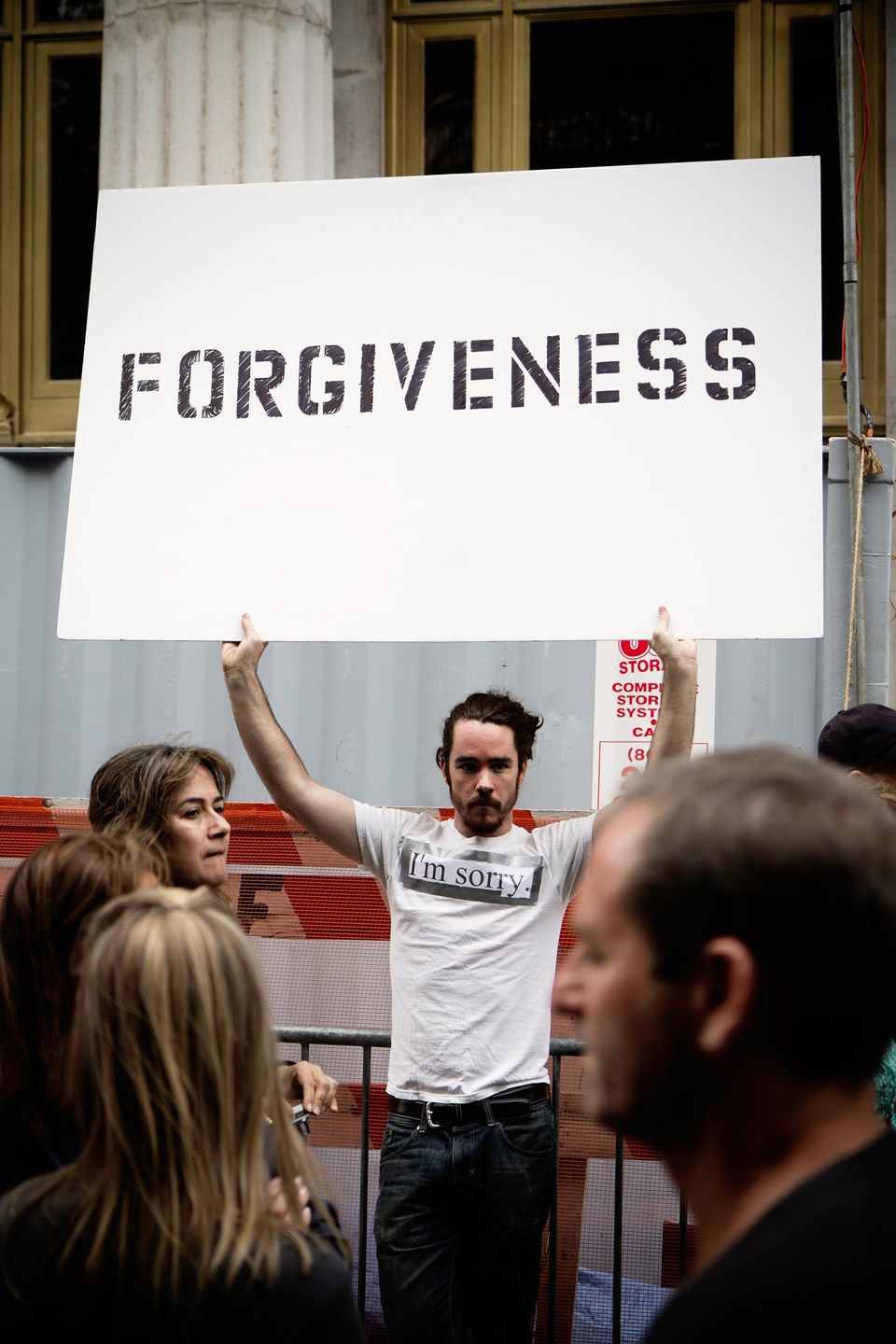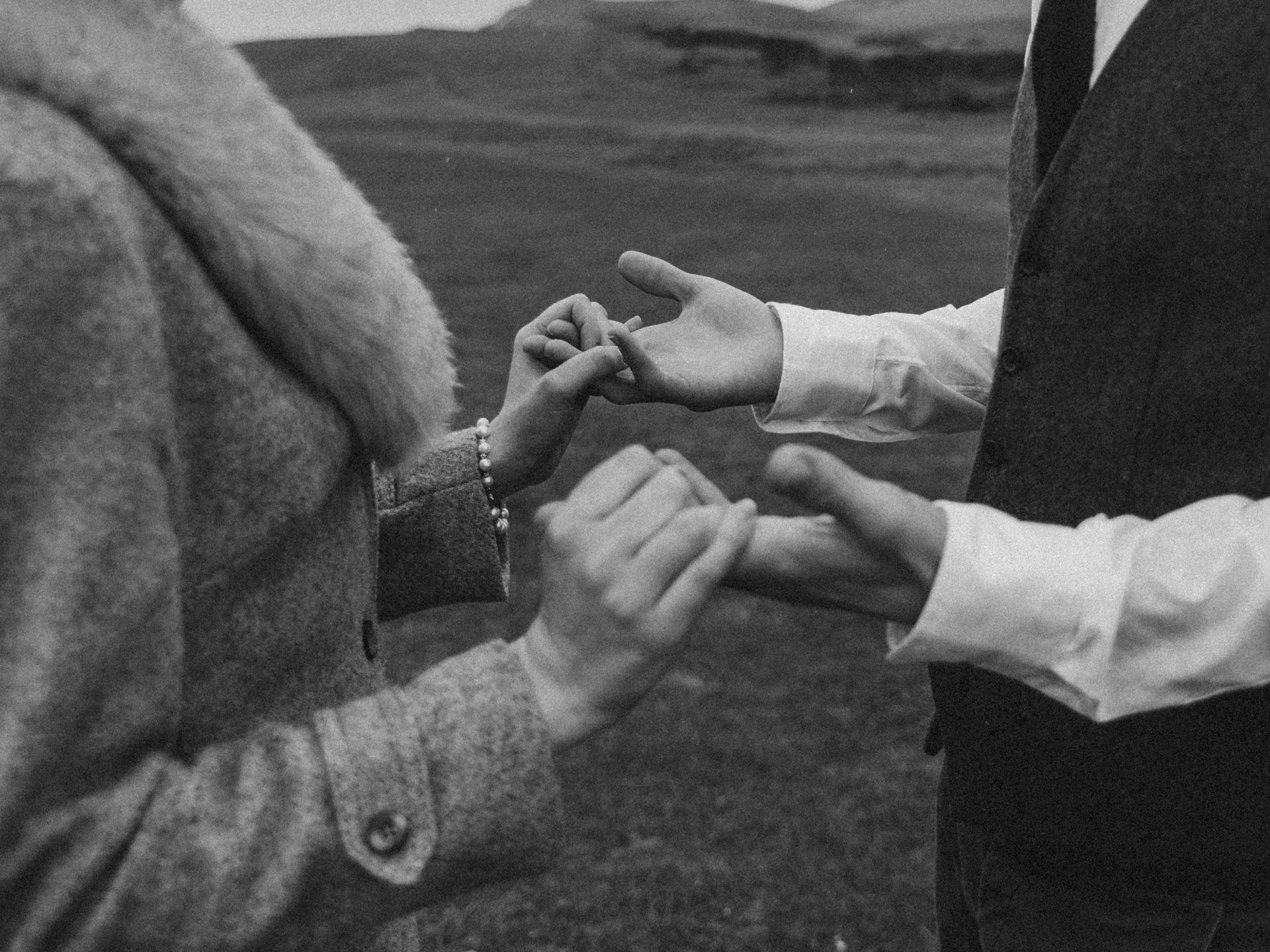Forgiveness
Alice Edge • August 14, 2020
Genesis 45:1-15

This story continues on from the reading last week that Robyn preached on. Between that story and this, Joseph is sold as a slave to one of Pharaoh’s Officials, whose wife took a fancy to him. That situation got messy, landed Joseph in prison, and while he was there he met two of Pharaoh’s servants, a cupbearer and a baker. He explained a couple of their dreams that they had, which accurately predicted the baker being killed by Pharaoh and the cupbearer being reinstated within the next three days. This happens, Pharaoh has some troubling dreams, and the cupbearer remembers that Joseph explained his dream, and recommends him to Pharaoh. This action, and Joseph’s accurate interpretations of Pharaoh’s dream leaves Joseph as the second-in-charge of all of Egypt to prepare and manage seven years of plentiful harvest and then seven years of drought. And this is where this story fits in. The drought that was predicted and prepared for is underway, Joseph is in charge, and his brothers, unknowingly, approach him to beg for the food necessary to see their family through such a tough time.
This encounter between Joseph and his brothers was a big deal, and I think there two big lessons we can learn from today’s reading: forgiving others and accepting forgiveness for ourselves. Let’s start with forgiving others.
I think we know, and I probably don’t really have to say, that forgiving people that hurt us can be a really difficult thing. I know I’m not alone in feeling that sometimes it’s really, really hard to properly forgive someone that has really hurt me. I also know that the longer I leave someone unforgiven, the longer it has in my head to swirl around and change from simply being unforgiveness of a behavior that hurt me to being resentful and bitter towards the person. It’s a messy space to be in, and I don’t think anyone would have blamed Joseph if that was where he landed. His brothers’ actions (excluding them considering murder) opened the doors for a whole lot of bad things, one after the other, to happen to Joseph. He became a slave, was screwed over and put in prison, left there to rot, and then left there to rot again. Each of these circumstances were incredibly horrific situations to land in, and were triggered by the jealousy and anger of Joseph’s brothers. So, I would totally get it if Joseph decided, long before this moment, or in this moment of seeing his brothers once again, to become cold and angry and distant and decide to not forgive them.
But, that’s not what happens. I do wonder, though, when Joseph decided to forgive his brothers for what had happened. There were so many opportunities over the years for that moment for Joseph to forgive to take place. Maybe it happened when he was serving his master in Egypt. Maybe it happened as he pondered his life in the cells. Maybe he was reflecting one night about the crazy turn of events in his life that led him to saving thousands of lives. We don’t know, but I think it’s something to think about, because each of these times would have brought different challenges in forgiving. What our own experiences tell us a lot of the time, however, is that the longer we leave it to forgive, the harder it can be, and the easier it is to become resentful or bitter towards that person.
And yet, regardless of when the Joseph actually forgave his brothers, we see him genuinely articulate forgiveness towards them when they meet face-to-face. What a crazy turn of events. Joseph had wrestled with the events of his life deeply enough to recognise that even though awful things happened, God had brought from it all incredible outcomes. It seems that this attitude of Joseph, someone who had no reason to forgive for a second, was what allowed him to forgive his brothers and make peace with what they had done. He doesn’t say that it was okay or that their choices were good ones, but that they were able to forgive themselves because Joseph forgave them.
This leads into the second lesson we can learn. The brothers had to get to a point where they could accept the forgiveness that Joseph offered them. I think sometimes it’s really easy to see ourselves only in the shoes of the hero in Bible stories, in this case, Joseph. But I wonder if we took a moment to see ourselves as the brothers, what would we see? How good are we at accepting the forgiveness we have offered?
If you keep reading the following chapters, you’ll see that Joseph’s brothers are skeptical of his forgiveness, frightened even, and are worried that he’ll act in a way that is seeking revenge for the awful things they did to him. Even in this initial meeting, they’re terrified to be in his presence. They seem to carry with them an uncertainty that they are actually forgiven, and aren’t able to initially rebuild the trust that they broke with their brother so long ago.
But I wonder if what we see in their mistrust of Joseph is actually a reflection of their own hearts. I wonder if they’re worried that Joseph will do to them what they would do if the tables were turned. Sometimes the reactions that we have are surprise expressions of where our hearts are and the darkness that lies within, and I think this might have been part of the struggle for Joseph’s brothers.
I wonder, too, if the other part of their problem is that they know they are unworthy of the forgiveness that Joseph has given them. They made awful choices many years before, and have done nothing in that time to make up for it. They have done nothing to earn the forgiveness of their brother, nothing to try to repair the relationship. If we look closely enough, they haven’t even been given the chance to apologise or to prove they’ve changed. None of that takes place. Instead, they’re confronted with the grace and forgiveness of their brother, seemingly with no strings attached. It seems too good to be true. And I don’t think the saying, “When it seems too good to be true, it usually is,” is a new field of thought. I think they have every logical reason to not trust Joseph’s forgiveness. They’ve probably been through this kind of thing before and been burned. They probably still haven’t forgiven themselves.
I was chatting with a friend about this sermon topic and the struggle that it can be to accept forgiveness, and she said this: “Accepting forgiveness at face value is often just as hard as offering it.” And I think that is a gem of wisdom and truth.
As we reflect on this story, I wonder where we sit with our own stories of forgiveness. Are we struggling to forgive someone for something they’ve done? Or on the flipside, maybe are we struggling to trust the forgiveness of someone towards us at face value?
Sermons For The Moment

This is an interesting Psalm – another psalm of ascent. We spoke about these Psalms of Ascent a few weeks ago. They were songs the Jewish people sang as they made their way to Jerusalem to go to the temple, through the forest, along the tracks, camping by the roads. And I believe songs like this kept them focussed and kept their spirits up. I can imagine days of walking together, tiring, boring, hot and dusty. And singing some of these Psalms keep them focussed on the faithfulness of God. Much better then eye spy for the kids. Journeys are not all their cracked up to be even if the destination is worth it. As you know, when I was growing up we always holidayed at Bawley Point past Ulladulla, and in those days it was about a 4 hour drive from Sydney. We always left later than we meant to…and the last 20 mins was on a dirt road. One year when I was probably about 4 years old it was dark by the time we got to the dirt road, and half way along the dirt road, was a dodgy wooden bridge over a river. I think part of the bridge had been damaged and we had to wait a bit in the pitch black darkness before we could proceed. Dad was out with a torch ensuring the bridge was safe to drive on and mum and us 4 kids were sitting in the darkness – no street lights, no moonlight. Of course, you might be able to guess what I said to mum in that car, with fearful crying…you’ve probably heard it from kids before. I said ‘I want to go home’. Mum said to me, ‘we can’t go home Robyn, we’re almost there’. In truth, after the bridge we had the last 10 minutes of a 4 hours journey left. We safely crossed the bridge and we were OK. But I remember it. I remember the feeling of being scarred in the darkness. I remember not liking this journey at all. Even though I always loved the destination. Well this psalm celebrates the end of the journey and the arrival at the destination. Psalm 126:1-3, “When the Lord brought back his exiles to Jerusalem, it was like a dream! We were filled with laughter, and we sang for joy. And the other nations said, “What amazing things the Lord has done for them.” Yes, the Lord has done amazing things for us! What joy!” Before we can understand the laughter and joy of the Israelites, we have to understand their journey. This Psalm looks back to when they arrived back in Jerusalem after 70 long years in Babylon. The captives had experienced great sorrow and mourning in exile. We read these heartbreaking words in Psalm 137: “Beside the rivers of Babylon, we sat and wept as we thought of Jerusalem. We put away our harps, hanging them on the branches of poplar trees. For our captors demanded a song from us. Our tormentors insisted on a joyful hymn: “Sing us one of those songs of Jerusalem!” But how can we sing the songs of the Lord while in a pagan land?” (Psalm 137:1-4). Their tormentors demanded they sing joyfully, but they were like – that’s impossible, it doesn’t come from our heart. So they just sat by the waters of Babylon and wept. But now by an amazing work of God they were suddenly back in Jerusalem. And so their joy came from their heart. The wait was over, the journey was complete. “We were filled with laughter, and we sang for joy.” The journey is the hard bit though isn’t it? I was reminded of this, this week. An Officer couple I was speaking to, said that their teenager said some very hurtful things to them. Stuff like, ‘you make my life worse’. As they spoke to me, I did very little but listen and pray with them. They do have other supports in their life as well, already seeing a psychologist. But what I was thinking in my head as they were speaking was ‘oh the teenage years, I’d forgotten them’. Though we have 2 wonderful young adults in P and K, they were times when it was more than tense. K wears her heart on her sleeve, and to this day apologises for some of the things she said to me. And P, you wouldn’t know what he was thinking, and then all of a sudden all his thoughts and feelings for the last 3 years would come out like molten lava everywhere. A few days later I checked in to see how the couple and their teenager were going. I mentioned in passing about teenage years and very briefly about our experiences. I didn’t want to make it all about me. But I said teenage years can be painful and those years can really hurt everyone in the family. Teenager included. They know that we have a good relationship with P and K and they said to me, you know, this is helpful. It gives us hope. I was like, yep, this too shall pass. Because when you’re in the midst of the journey of pain and sorrow, you sometimes wonder if there’s light at the end of the tunnel. If you’ll laugh again or experience joy again. You begin to wonder, “Is this all that God has for me? Will I ever be happy again?” And here’s the promise in Psalm 126:4-6, “Restore our fortunes, Lord, as streams renew the desert. Those who plant in tears will harvest with shouts of joy. They weep as they go to plant their seed, but they sing as they return with the harvest.” When you are going through a time of deep sorrow, Psalm 126 is strong medicine for your soul. It carries a powerful message of hope. It tells you that times of trouble and sorrow do not last. It tells you that God will turn your sorrow to joy and your tears to laughter. If you are going through a challenging time right now, I pray that this psalm will speak to your heart this morning. Let me tell you right up front, whatever you’re going through, it will get better. God will change your tears to joy. This week I found something I wrote about 10 years ago. I had written it on a piece of paper and there was a whole reflection about my life. At the time we had my mum living with us, she had dementia, and mostly I remember the good times and the fun times with her. I was also the Corps Officer at Glebe and Bob was the manager at William Booth House. After a page of writing I had written something like this “I’m often anxious, I’m usually stressed, I have eczema on my eyelids and ulcers in my mouth. I always feel pressed.” I went out to Bob in the lounge room and I’m like, ‘oh my goodness, eczema on my eyelids and ulcers in my mouth’, often anxious, usually stressed. The thing is, my life feels a long way from that now, and I’d forgotten what that part of my journey felt like. I’m sure when I was there I couldn’t look ahead and see a time of joy…but the truth is that “Those who plant in tears will harvest with shouts of joy. They weep as they go to plant their seed, but they sing as they return with the harvest.” This too shall pass. ‘Yes, the Lord has done amazing things for us!’ says verse 3. God is faithful – he does the healing, the restoring, he brings the streams in the desert that renews and brings fruitfulness. I don’t need to tell you – it takes time. Today, I’m praying for a work of healing in your life, a gradual restoration of joy, of laughter. Like me as a kid, sometimes we don’t like parts of this journey at all. Even though we know our destination is good. And ultimately, we have a destination like no other and that’s the promise of God. A home in heaven made possible through Jesus. May God bless you this week as you look to Him, listen to Him, find your hope in Him and find courage and healing in your journey.







